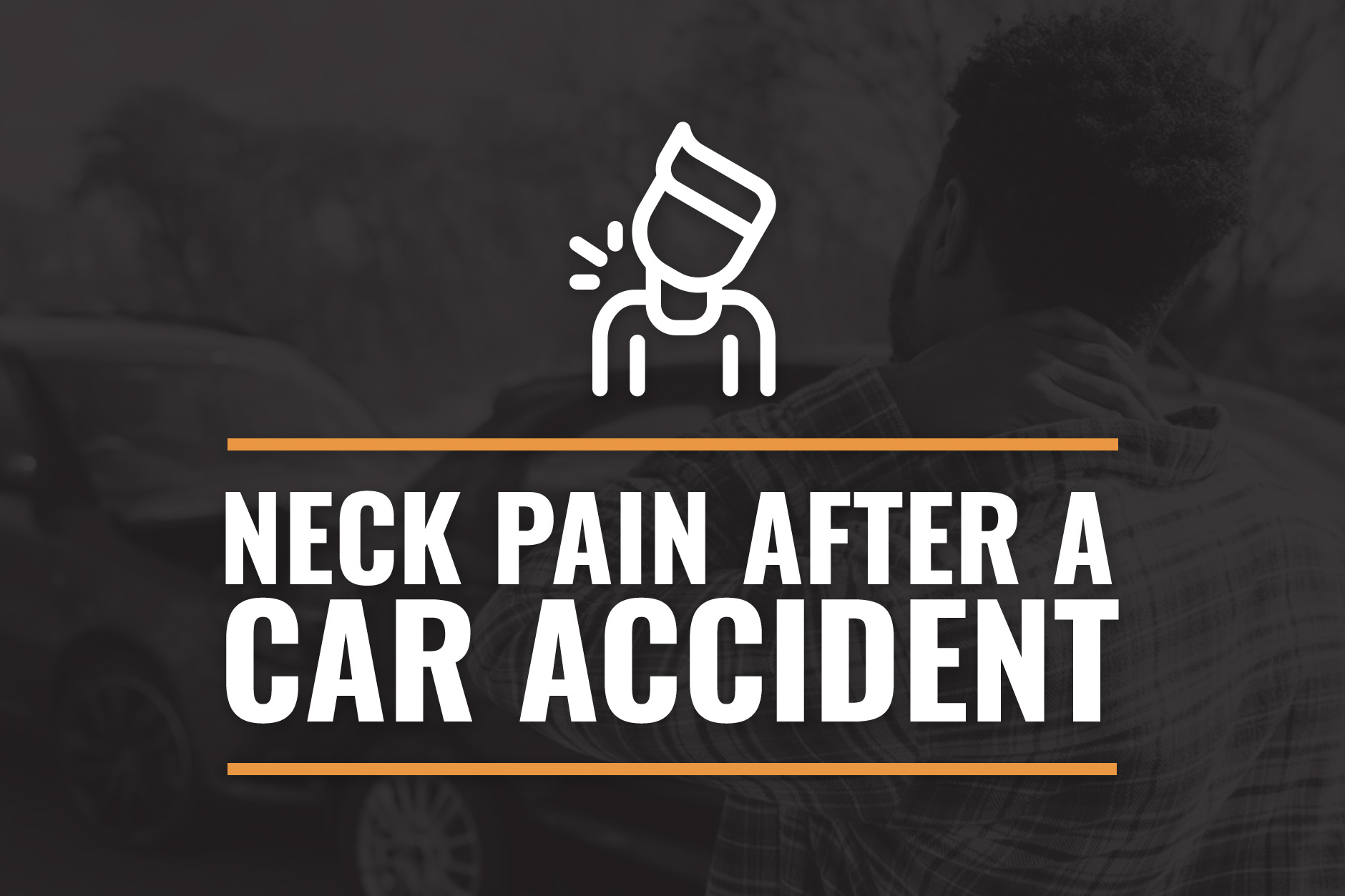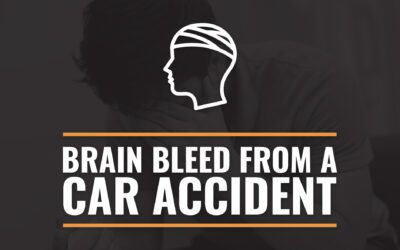
Table of Contents
Neck pain is one of the most frequent problems people face after a car accident, even in seemingly minor collisions. The sudden impact of a crash exerts unnatural pressure on your neck, resulting in injuries that range in severity from mild strains to extensive damage that affects other parts of the body. Symptoms might show up immediately or emerge days later, making prompt medical attention critical.
If you’ve been in a Michigan car accident, quickly addressing any neck pain can get you on the road to recovery much faster. In this blog, we’ll discuss the most common causes of crash-related neck injuries, outline recovery steps, and explain how an experienced car accident lawyer can help.
Common Causes of Neck Pain After a Car Accident
Your neck is one of the most vulnerable areas of your body. Even a minor collision can stretch muscles, tear ligaments, or cause serious spinal issues, leaving you with pain that disrupts daily life. Successful recovery involves identifying the cause and nature of your injury, followed by obtaining the appropriate treatment.
Whiplash
Whiplash occurs when the neck moves rapidly back and forth during a collision, resulting in soft tissue injury. Rear-end accidents are a common culprit, as they cause the head to jerk forward and backward uncontrollably. Symptoms include:
- Persistent stiffness or soreness in the neck
- Headaches, particularly at the base of the skull
- Pain in the shoulders, upper back, or arms
- Dizziness or fatigue
- Difficulty concentrating or memory issues in severe cases
Whiplash injuries may take 24 to 48 hours to fully present symptoms, so even if you feel fine immediately after an accident, it’s important to monitor your condition closely: you may be more injured than you realize.
Herniated Discs
Between the bones in your spine (called vertebrae), you have discs that act as shock absorbers, keeping your spine flexible and protecting it from impact. When the force of a crash becomes too much, these discs can rupture or shift out of place. This is what’s known as a herniated disc.
When a disc is displaced, it often presses against nearby nerves in your spinal column. This pressure can trigger pain that doesn’t stay confined to your neck. Instead, it can radiate into your shoulders, arms, or even your hands, making everyday tasks difficult and uncomfortable. Symptoms include:
- Sharp, Shooting Pain: This pain can be localized in your neck or extend down into your shoulders and arms. It often worsens with movement, like turning your head or lifting objects.
- Numbness or Tingling: You might notice a pins-and-needles sensation in your arms, hands, or fingers. This happens because the herniated disc is irritating the nerves responsible for those areas.
- Muscle Weakness: A herniated disc can compress nerves that control your arm and hand muscles, making them feel weak or limiting your ability to grip objects.
The sooner you address a herniated disc, the better your chances of avoiding long-term complications. Left untreated, nerve compression can lead to permanent damage or chronic pain. Seeking immediate medical attention ensures you get the right diagnosis and treatment plan.
Cervical Fractures
In high-impact car accidents, the cervical vertebrae (bones in your neck) are at risk of fracturing. The cervical spine is responsible for supporting your head, allowing movement, and protecting your spinal cord; when a fracture occurs, it can destabilize your neck, putting your spinal cord and overall mobility in jeopardy.
The severity of a cervical fracture depends on the nature of the accident and which vertebrae are affected. Some fractures can cause localized pain, while others may lead to life-altering complications, such as paralysis or even life-threatening spinal cord injuries. Common symptoms include:
- Severe Neck Pain: Persistent, sharp, or throbbing pain in the neck that doesn’t subside with rest or over-the-counter pain relief. This is often the first sign of a potential fracture.
- Swelling or Tenderness: The area around the fracture site may become swollen or feel tender to the touch. This is your body’s natural response to trauma but also a sign of significant damage.
- Limited or Complete Loss of Movement: Difficulty moving your neck or a complete inability to do so is a strong indicator of a cervical fracture. Movement may worsen the pain and could risk further injury if the fracture is unstable.
Delaying treatment for a cervical fracture can lead to severe complications. For example, the fractured bone may shift, causing spinal cord compression or damage. This could result in symptoms like numbness, tingling, or even paralysis in other parts of your body.
Nerve Compression
Nerve compression, also known as a pinched nerve, is a frequent and often debilitating consequence of car accidents. When the delicate nerves in your cervical spine are compressed or irritated (whether by swelling, a herniated disc, or a bone injury), it can trigger pain that spreads far beyond your neck. This is because the nerves in your cervical spine connect to other parts of your body, including your shoulders, arms, and hands.
What makes nerve compression tricky is that its symptoms can vary widely depending on the specific nerve affected. For some, it may feel like a constant, nagging discomfort. For others, it manifests as sharp, shooting pain or even a loss of function in the affected area. Left untreated, nerve compression can lead to chronic pain or permanent damage, so recognizing the signs early is crucial.
Muscle Strains
When you’re in a car accident, the sudden force your body endures can put extreme stress on the muscles in your neck. These muscles, which are responsible for movement, stability, and supporting the weight of your head, are not built to handle the jerking motions of an impact. As a result, they can become overstretched or even torn.
Muscle strains in the neck, while often considered “less severe” compared to structural injuries like fractures or herniated discs, can still create challenges. Discomfort may range from mild soreness to sharp, persistent pain that disrupts your daily life. If left untreated, even minor strains can lead to compensatory patterns (where other muscles in your body overwork to “protect” the injured area), causing secondary issues like headaches, upper back pain, or even posture problems.
Steps to Take If You Experience Neck Pain After a Car Accident
After a car accident, your priority needs to be your safety and well-being. Even if your pain seems minor, get a medical evaluation as soon as you can. Some injuries, such as whiplash or herniated discs, may not show symptoms right away but can worsen without treatment. A doctor can identify hidden injuries and create a treatment plan tailored to your needs.
Other recommended steps include:
- Document Your Symptoms and Treatment: Keep a record of your symptoms, medical visits, and treatment plans. These documents can serve as evidence in your insurance claim or personal injury case. Take detailed notes on the progression of your pain and any activities you can no longer perform due to your injury.
- Notify Your Insurance Company: Under Michigan’s no-fault insurance laws, you must report your injury promptly to your insurer to qualify for benefits. Delaying this step could jeopardize your claim, so it’s best to notify them as soon as possible.
- Follow Your Doctor’s Instructions: Following your prescribed treatment is important for both your recovery and your case. Missing appointments or failing to follow recommendations may give insurers a reason to question the severity of your injury.
Treatment Options for Neck Pain
Recovering from neck pain requires a combination of medical care and ongoing management. Here are the most common treatment options:
- Rest and Over-the-Counter Pain Relief: For minor injuries, rest combined with anti-inflammatory medications can reduce swelling and alleviate discomfort. Avoid strenuous activities until your doctor approves them.
- Physical Therapy: Physical therapy is one of the most effective treatments for neck injuries like whiplash. A trained therapist can help improve your neck’s flexibility, strength, and range of motion. They may also recommend exercises you can perform at home to continue your progress.
- Chiropractic Care: Chiropractors use manual adjustments to realign the spine, relieving nerve pressure and reducing pain. This option is especially helpful for injuries like nerve compression or mild disc issues.
- Injections: For moderate to severe pain, your doctor may recommend corticosteroid injections or nerve blocks. These treatments reduce inflammation and provide targeted relief.
- Surgery: Surgical intervention is typically a last resort for cases involving severe herniated discs, fractures, or nerve compression. While surgery carries risks, it may be necessary to restore function and alleviate chronic pain.
How a Michigan Car Accident Lawyer Can Help
Neck pain limits your ability to work, enjoy life, or even sleep comfortably. Now imagine stacking insurance claims and legal deadlines on top of that. To make matters worse, insurance companies aren’t looking out for you: they’re businesses, and their goal is to save money, not to pay you what you’re owed.
An experienced attorney knows the tricks insurers use to minimize payouts. They’ll counter those tactics by:
- Collecting your medical records and consulting with experts to prove the full extent of your injury.
- Showing how neck pain impacts your daily life, from missed workdays to the physical limitations you now face.
- Calculating future expenses, like physical therapy or long-term care, so nothing is left out.
When it’s time to negotiate, they’ll handle the back-and-forth, so that the final settlement reflects what you truly need to move forward.
If your injuries are severe, you might need to file a lawsuit against the at-fault driver. Your attorney will help you prepare by gathering evidence like accident reports, medical records, photos, videos, and witness statements. They can also collaborate with professionals like accident reconstructionists to make your case stronger. A well-prepared case often encourages insurance companies to settle fairly, but if negotiations fall through, your lawyer can take your case to court.
Already started the process? No problem. An attorney can step in at any stage to negotiate a better settlement or prepare your case for court. The key is to act before it’s too late. Once deadlines pass, your options may be limited.
Speak to a Michigan Car Accident Attorney Today
Neck pain after a car accident can disrupt your life, so seek medical care immediately, follow your treatment plan, and understand your rights and options under Michigan’s no-fault insurance laws. When you’re ready to file an insurance claim, LegalGenius is here to help you level the playing field and secure the compensation you need. To schedule a free consultation with a car accident lawyer, fill out our Ask the Genius™ form or call 1-800-209-4000. We invite you to learn firsthand why so many clients have been trusting us with their claims for over 30 years.

Attorney Jeffrey Perlman
Attorney Jeffrey Perlamn is the managing partner at LegalGenius, PLLC. He has helped Metro Detroit accident victims recover the compensation they deserve for over 35 years. He believes everyone should have access to justice and the legal system, which is why Attorney Perlman spends his time outside of the courtroom writing informational blogs on the LegalGenius website that are accessible to all.


